

Have you ever wondered just how deep your musical taste really is? Are there hidden musical treasures waiting to be discovered behind those popular tracks you play on repeat? Spotify Iceberg was created for this very purpose — it visualises your listening habits as a "musical iceberg", revealing your full range of tastes, from mainstream to niche artists. It can even help you rediscover artists you once loved but have since forgotten.
Whether you’re curious about what is Spotify Iceberg, how it works, or how to get your own Spotify Iceberg Chart, this guide walks you through every detail. You’ll also learn how to download the songs from it for offline listening anytime.
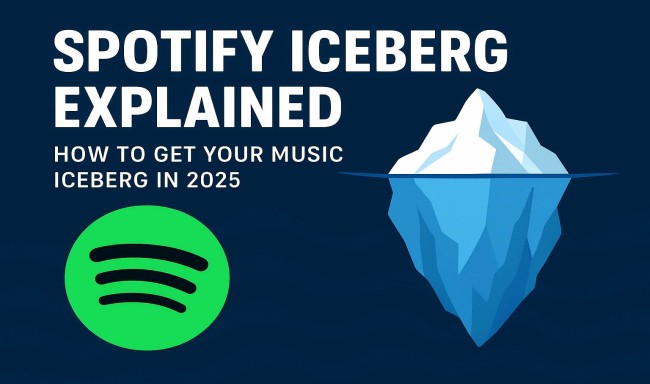
This section is divided into four parts to help you gradually understand the Spotify Iceberg: what it is, how it works, the meaning behind its three-layer structure and how it differs from other Spotify data visualisation tools.
Spotify Iceberg is a third-party tool that provides a visual representation of your musical taste. It organises artists into layers based on their global popularity, forming an "iceberg" shape that reveals your listening depth and diversity.
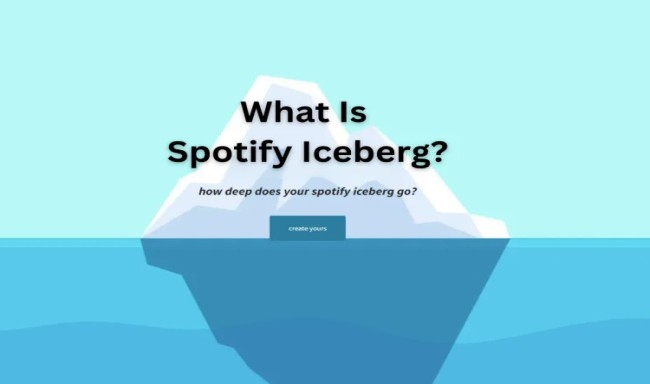
Spotify Iceberg analyses your Spotify listening history and ranks your top 50 artists based on overall recognition rather than how frequently you play them, over short-, medium- or long-term periods. This means that if you listen to an artist who is relatively unknown globally, they may appear lower down the iceberg, while globally popular musicians will rise to the top.
Each layer of Spotify Iceberg Chart corresponds to different levels of artist popularity and listener engagement:
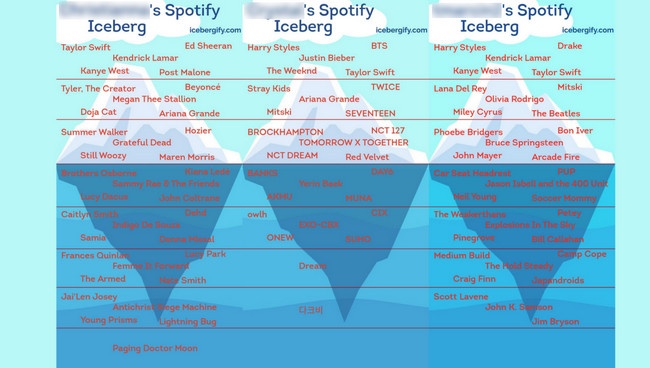
In the Spotify Iceberg Chart, the higher the position, the more popular the artist, and the lower the position, the more niche the artist and the fewer followers they have. Yet it's precisely these "deeper" artists that make your musical taste unique.
Like a real iceberg, only the tip of your musical preferences is visible. The true depth and diversity lie in the lesser-known artists you have discovered over time — those who hold profound meaning for you. This layered approach visually represents not only what you listen to, but also whether your tastes lean towards the mainstream or the alternative.
| Tool | Features | Focus | Visualization Style |
| Spotify Wrapped | Official annual recap of your top artists, songs, and genres | Yearly highlights and mainstream trends | Colorful slideshow / year-end report style |
| Spotify Pie Chart | Third-party tool that shows your music taste by genre and subgenre | Genre-based listening habits | Pie chart visualization |
| Spotify Iceberg | Visualizes artist popularity and your hidden favorites | Mainstream vs. niche balance | Layered iceberg chart |
Now that you understand what is Spotify Iceberg, let’s explore how to get Spotify Iceberg on desktop and mobile. The process is straightforward and completely free.
Step 1 Visit the official Icebergify website in your browser.
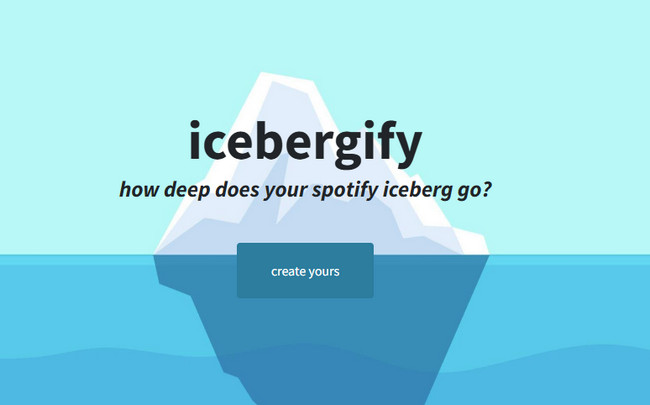
Step 2 Click "create yours", then log in to your Spotify account.
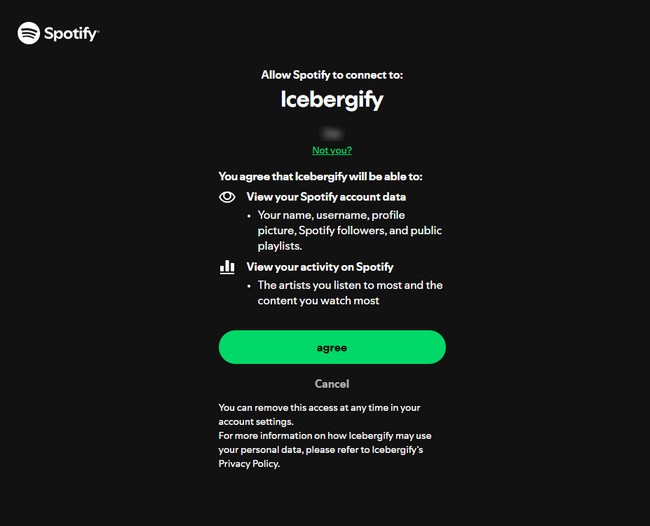
Step 3 After logging in, you'll first see this month's Spotify Iceberg Chart. To view your historical rankings, click "Click here to see your all-time iceberg!"
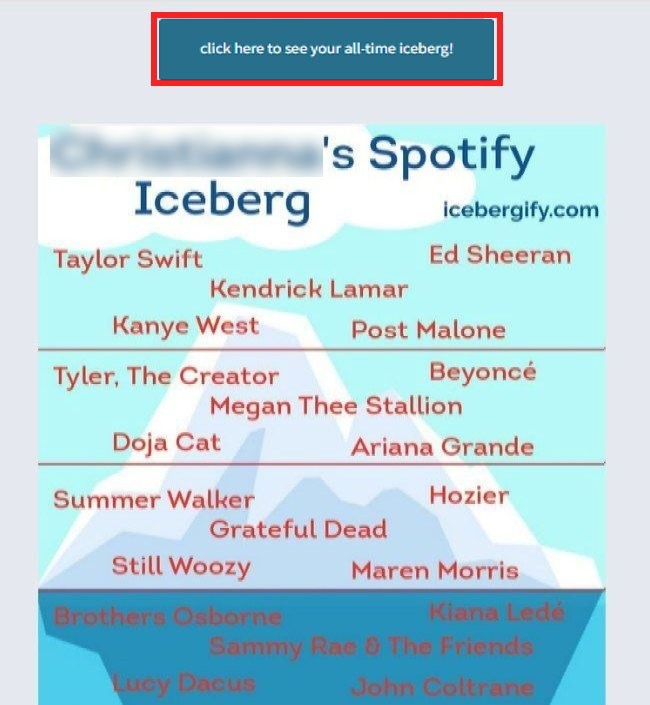
Step 4 To save your iceberg, simply right-click the image and select "Save image as...". Or the most direct method is to take a screenshot.
Step 1 Visit the official Icebergify website in your browser.
Step 2 Click "create yours", then log in to your Spotify account.
Step 3 After logging in, you'll first see this month's Spotify Iceberg Chart. To view your historical rankings, click "Click here to see your all-time iceberg!"
Step 4 To save your iceberg, long press the image, then select "Download" or "Save to Album". Or the most direct method is to take a screenshot.
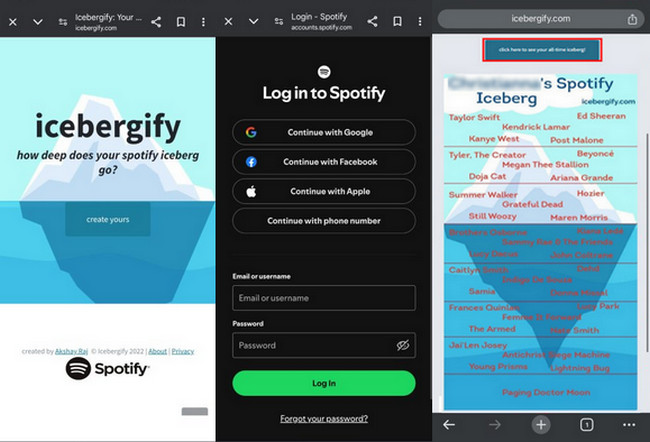
The iceberg images generated and saved can serve not only as personal keepsakes but also be shared with friends or on social media platforms. This way, others can instantly see your musical taste and unique preferences.
Now you know how to generate your own Spotify Iceberg Chart! Next, let's explore how to build a personalised music collection based on the featured artists and download these songs for offline storage.
Firstly, streaming these niche artists on Spotify usually requires an active internet connection. The lesser-known musicians at the base of the iceberg often have rare and under-exposed works, and some of these may be removed from Spotify at any time due to copyright or regional restrictions.
If you want to keep these musical discoveries for a long time, the best approach is to download and save them as local files. With NoteBurner Spotify Music Converter, you can easily convert and download Spotify tracks in popular formats such as MP3, AAC or FLAC while retaining the original audio quality and complete ID3 tags. Once downloaded, your music can be transferred to any device for playback, including phones, tablets, car stereos and traditional MP3 players that don't support Spotify. This way, you can permanently collect works that represent your unique musical taste and enjoy them offline anytime, anywhere, free from the constraints of internet connectivity, copyright restrictions or platform limitations.

Step 1 Download, install and launch NoteBurner Spotify Music Converter on your computer. If you prefer downloading songs in lossless quality, we recommend using "Spotify App Mode".
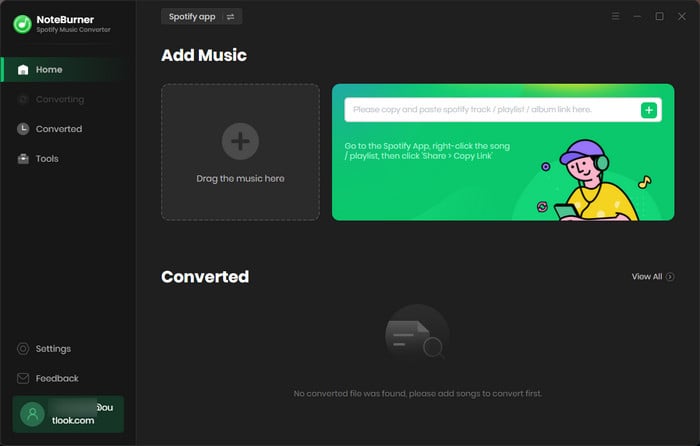
Step 2 Select the playlist you created or artist based on the Spotify Iceberg Chart, click the green add icon in the bottom-right corner, then choose the songs you want to download and click "Add".
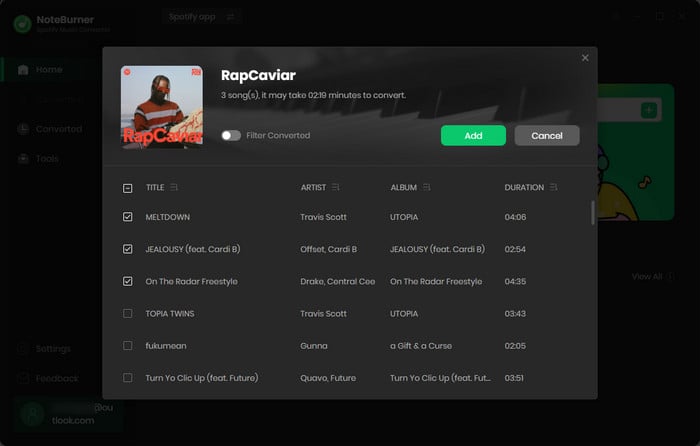
Step 3 Select your desired output settings (such as conversion mode, output format, bit rate, output folder, etc.).
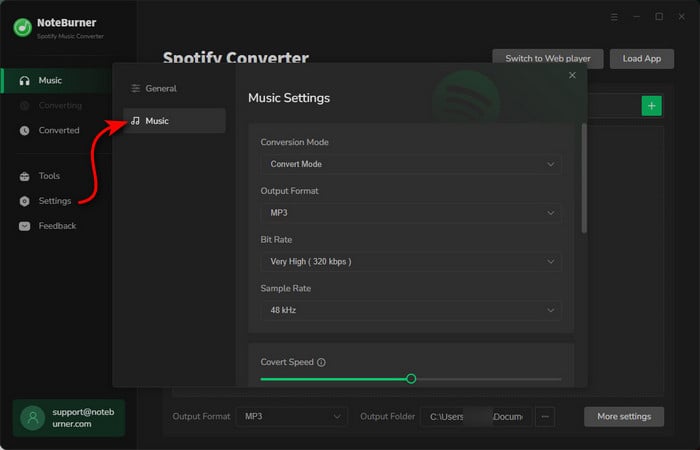
Step 4 Click "Convert", NoteBurner will start downloading these songs.
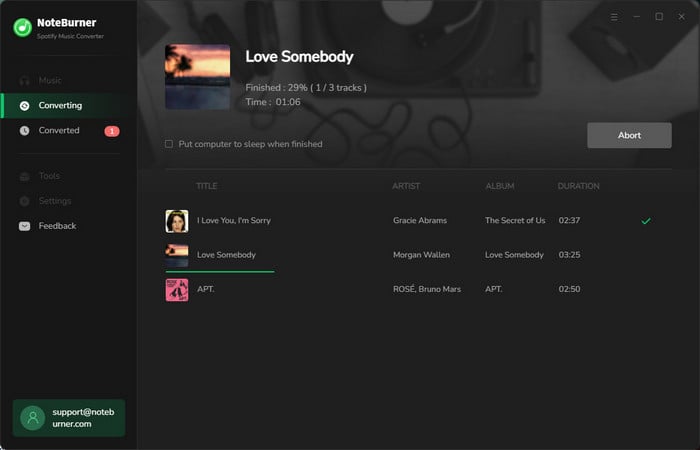
Step 5 After downloading, click on "History" to see the songs you downloaded and locate the folder where they were saved.
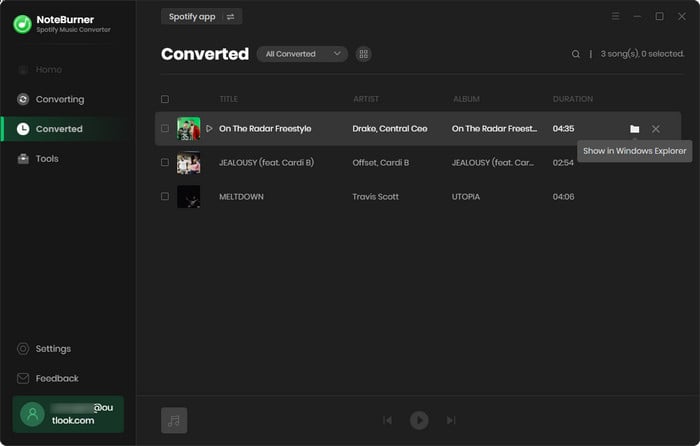
Downloaded music files will be saved locally. You can import t hem to any offline device, such as a phone, tablet, MP3 player or car audio system, to enjoy playing them back anytime without an internet connection. You can also manage or edit music files using any media player according to your preferences, for example by creating playlists, to enjoy a more flexible and personalised music experience.
A: Each time a new iceberg is generated, your iceberg will be updated. This data reflects your most recent Spotify listening activity. If your musical tastes have changed or you've discovered new artists, simply revisit the Icebergify website and click "create yours" again to get an updated Spotify Iceberg Chart.
A: This means that you haven't listened to enough artists within a specific popularity range. For example, if you mainly listen to extremely mainstream or extremely niche artists, it is likely that you have few artists in the 'middle layer' popularity range. This results in that layer of the iceberg being empty.
A: This may be because you have listened to these artists a long time ago, or perhaps you have listened to them a few times recently by accident. Therefore, they appear on your iceberg.
A: Not necessarily. The Spotify Iceberg Chart is based on global popularity, not how often you play a particular artist. Even if you listen to a niche or underground musician, they'll probably appear at the bottom of your iceberg.
A: If you are unable to access the Icebergify website, it may be for one of the following reasons:
A: Yes. The core feature of Spotify Iceberg is to help you gain a more comprehensive understanding of your Spotify listening habits. It accesses your Spotify account data, such as your most-played artists, play counts and listening periods, to generate a visual "iceberg" chart.
The information collected from users is limited to their Spotify account ID, username, and their top 50 tracks and artists over the past few years. This data is solely used to create a ranking of your most-played artists in the form of an iceberg and will not be used for any other purpose. It is not stored, sold or shared with third parties.
By now, you should have a thorough understanding of the Spotify Iceberg concept and how it is generated. It's not just a visual music data analysis tool; it's also a fun and social way to interact. The Spotify Iceberg Chart intuitively shows the distribution of the artists you frequently listen to, from mainstream to niche, clearly showcasing your unique musical taste and depth.
If you discover artists you love while exploring your Spotify Iceberg Chart and wish to save their songs locally for offline listening at any time, NoteBurner Spotify Music Converter is the ideal solution. This software enables you to collect, play and manage your personal music library freely, without relying on the Spotify app.